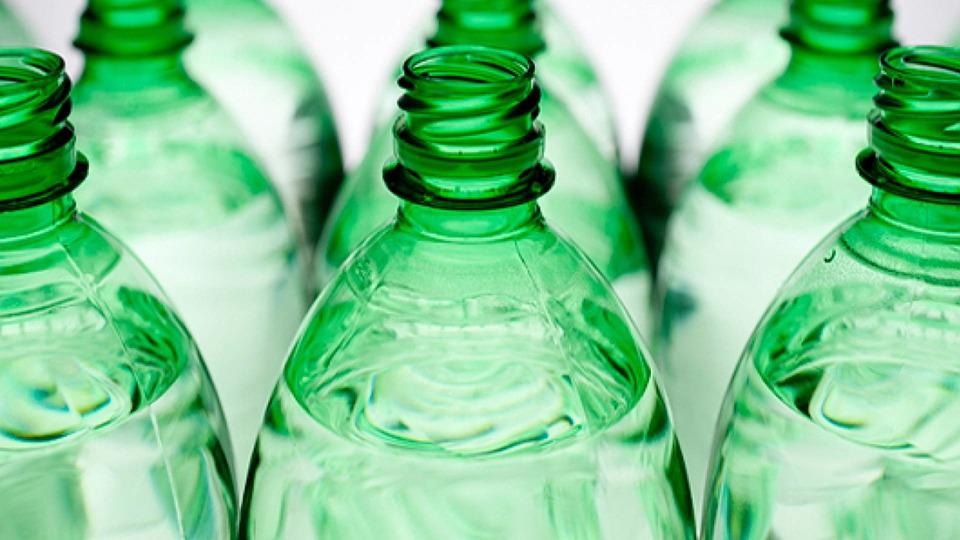Mar 26 2021
Measures to switch from petrochemical plastics to biodegradable, renewable plastics have been challenging. This is because the production process can necessitate hazardous chemicals and is costly, and the water stability and mechanical strength are usually inadequate.
 Image Credit: Yale School of the Environment.
Image Credit: Yale School of the Environment.
However, scientists have now achieved an advance using wood byproducts, which exhibits potential for making more sustainable and durable bioplastics.
The process by which the porous matrix of natural wood is deconstructed into a slurry has been described in a paper published in Nature Sustainability and co-authored by Yuan Yao, assistant professor of industrial ecology and sustainable systems at Yale School of the Environment (YSE).
According to the researchers, the resulting material exhibits UV-light resistance, a high mechanical strength, and stability when holding liquids. Moreover, it can be recycled or safely biodegraded in the natural environment. The new material has a lower life-cycle environmental effect than petroleum-based plastics and other biodegradable plastics.
There are many people who have tried to develop these kinds of polymers in plastic, but the mechanical strands are not good enough to replace the plastics we currently use, which are made mostly from fossil fuels. We’ve developed a straightforward and simple manufacturing process that generates biomass-based plastics from wood, but also plastic that delivers good mechanical properties as well.
Yuan Yao, Assistant Professor of Industrial Ecology and Sustainable Systems, Yale School of the Environment
The researchers prepared the slurry mixture by using a wood powder—a processing residue often disposed of as waste in lumber mills—and deconstructing the loose, porous structure of the powder by using a recyclable, biodegradable deep eutectic solvent (DES).
The ensuing mixture exhibits hydrogen bonding and nanoscale entanglement between the regenerated lignin and cellulose micro/nanofibrils, while having a high viscosity and high solid content, which can be cast and rolled without being broken.
Then, Yao headed a detailed life cycle evaluation to test the environmental effects of the bioplastic against commons plastics. Sheets of the bioplastic buried in soil fractured after two weeks and fully degraded after three months. Moreover, the researchers added that it is possible to break down the bioplastic back into the slurry through mechanical stirring, which also enabled the recovery and reuse of the DES.
That, to me, is what really makes this plastic good: It can all be recycled or biodegraded. We’ve minimized all of the materials and the waste going into nature.
Yuan Yao, Assistant Professor of Industrial Ecology and Sustainable Systems, Yale School of the Environment
According to Liangbing Hu, co-author of the study and a professor at the Center for Materials Innovation at the University of Maryland, the new bioplastic has several applications. It is possible to mold it into a film and use it in packaging and plastic bags—one of the main uses of plastic and reasons for waste production. Hu added that since it is feasible to mold the bioplastic into various shapes, it also has potential applications in automobile manufacturing.
The researchers continue to study the possible impact on forests in case the production of this bioplastic is increased. Although at present the process involves using wood byproducts in manufacturing, the team notes that they are keenly aware that large-scale manufacture could necessitate the use of enormous amounts of wood, which could have extensive implications on land management, forests, climate change, ecosystems, for example.
According to Yao, the team has already started working with a forest ecologist to develop forest simulation models, which connect the growth cycle of forests with the production process. She also eyes on a chance to join hands with people who work in forest-related fields at YSE—a rare convenience.
It’s not often an engineer can walk down the hall and talk to a forester.
Yuan Yao, Assistant Professor of Industrial Ecology and Sustainable Systems, Yale School of the Environment
Yao is an emerging scholar in the industrial ecology field and joined the YSE faculty last year. Her research investigates the economic and environmental impacts of emerging technologies and industrial processes, combining interdisciplinary strategies from the fields of sustainable engineering, industrial ecology, and systems modeling to create techniques that boost more sustainable engineering methods and policies.
Journal Reference:
Xia, Q., et al. (2021) A strong, biodegradable and recyclable lignocellulosic bioplastic. Nature Sustainability. doi.org/10.1038/s41893-021-00702-w.